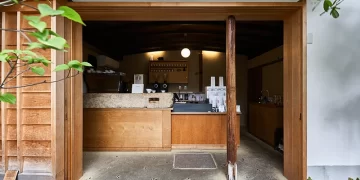Latin America Is Set To Become A Global Powerhouse For Innovation
Pain points are what drive innovation. This could be why tech startups have been flourishing in Latin America over the past several years. The number of these startups backed by venture capital more than doubled between 2020 and 2023 to over 2,500. In 2021 alone, Latin American startups attracted over $16bn in investment, which is equivalent to the previous ten years combined. The arrival of Silicon Valley’s top venture capital firms such as Sequoia Capital, Andreessen Horowitz and Accel Partners and, accelerators like Y Combinator could be the driving force behind this.
Historically, Latin America has been a region plagued with challenges in need of solutions. Like elsewhere in the world, startup activity in this region exploded during the pandemic. People confined in their homes needed a means of escape, if only mentally. Shopping and online entertainment acted as a release valve for the majority of the population, although proving to be limited in scope. This was mainly due to existing firms in the region relying on the traditional business model of driving sales through in-store traffic. Additionally, many individuals across the region remain unbanked, that is to say, they lacked access to basic financial services. Digital payments and online shopping portals were yet to be integrated or developed, creating a landscape ripe for innovation and opportunity. SoftBank, a Japanese investment fund, had launched its first Latin America fund in 2019, worth $5bn. Such funds have been instrumental in unleashing the regions entrepreneurial talent.
Throughout Latin America, many startups aim to make daily life more convenient – groceries or takeaway food delivered right to your door, for example. Startups like Cornershop, a Chilean app started in 2015 are doing just that. They allow individuals to order their groceries from the app and have them delivered right to their doorstep. Cornershop was brought under Uber’s wing in 2019 when they took a majority stake in a bid to expand their geographic reach and food delivery service. Uber later purchased the remaining shares in Cornershop in 2021 for roughly $1.4bn. Additionally, Rappi, a Columbian app also founded in 2015, began its journey by connecting small businesses or ‘neighborhood stores’ with users within a few city blocks. Rappi has now raised over $1bn in funding and is now one of the most valuable tech startups in Latin America.
Startups also aid in the greater good by reflecting particular pain points most commonly experienced by people in certain areas. The regions diverse geography can make logistics a nightmare, often correlating with lengthy postal service delivery times and, worse, missing mail. Established e-commerce tech companies like Mercado Libre (the Amazon of South America) have taken matters into their own hands and developed their own logistic arms. Like Amazon and Alibaba, Mercado Libre has developed a diversified business model, one aimed at boosting electronic commerce. With Mercado Libre Marketplace acting as the central hub for the company, additional business units have since launched to provide payment solutions, logistics, financing and software services. But whereas Amazon has a cloud-computing arm in Amazon Web Services (AWS), Mercado Libre has s booming payments business.
Startup Hubs
Brazil has long been Latin America’s most established startup hub, followed by Mexico, Columbia, Chile and Argentina. Expect some countries to start producing their first startup unicorns (companies valued over $1bn). As market dynamics begin to align with fostering more tech innovation, expect more cities, not just countries, to become startup hubs as well.
Nubank, a Brazilian fintech company, is now the largest neobank in the world and commands a $25bn valuation. Not bad for a company founded only a decade ago. Nubank is not just one of Latin America’s startup heroes, it’s one of the fastest growing companies in the world. What’s been their recipe for success? They found out before anyone what has since become obvious to the entire world: there is a massive amount of untapped potential in Latin America for innovative financial products. Nubank has even caught the eye of legendary investor – Warren Buffet. In 2021, Buffett’s company, Berkshire Hathaway, purchased 107 million shares in Nu Holdings, the parent company of Nubank.
Part of Latin America’s fintech allure are the friendly regulations that give investors like Warren Buffet the confidence to invest for the long-term. Financial services are one of the most regulated industries in the world, so it’s no surprise that pro-fintech governments across the region are tackling this problem first. In 2018, Mexico became the first Latin American country to pass updated fintech laws, called ‘Ley Fintech’. These regulations created a compliant framework for fintech companies to offer new financial products. Similarly, Brazil approved its Open Banking project in 2019 designed to standardized the sharing of data, products and services between financial institutions. Argentina and Peru are expected to pass similar laws over the coming years. Chile has been more proactive and has announced a preliminary framework around open banking.
These regulatory tailwinds provide a massive opportunity for fintechs to compete with legacy financial institutions in Latin America. As these regulations continue to rollout, startup activity will continue to thrive.








